
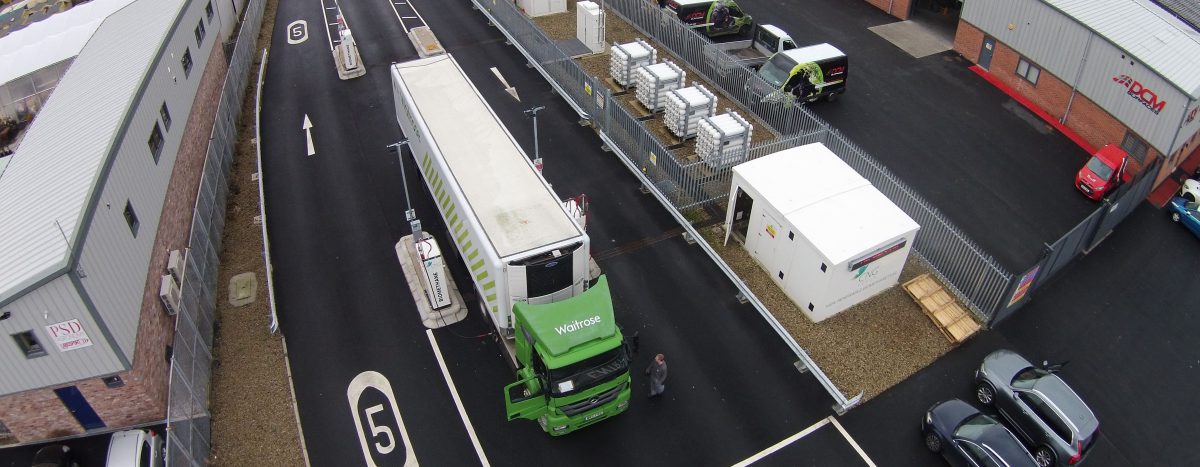
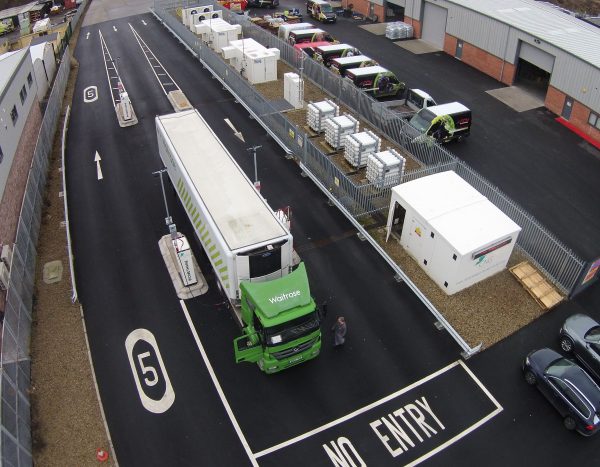
Bio-CNG is an innovative vehicle fuel that permits hauliers to decarbonise their Heavy Goods Vehicles in 2021! Unlike other diesel alternatives, Bio-CNG offers customers readily available OEM products in the HGV market, allowing them to immediately cut carbon emissions and reduce their operating costs.
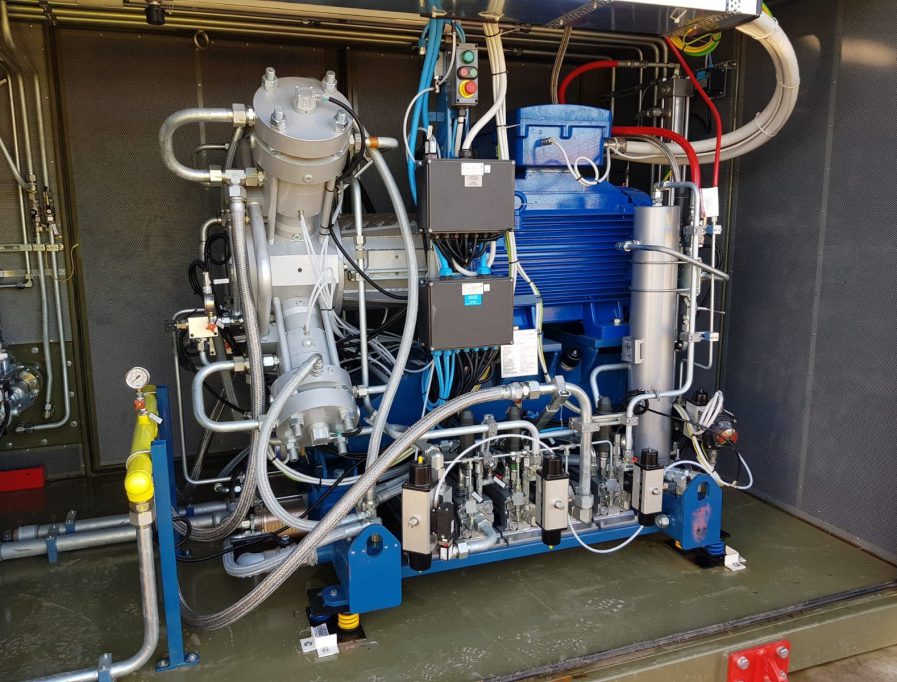

Bio-CNG stands for Bio-Compressed Natural Gas, which is gas taken from the gas grid that has recently been produced from organic waste and not from fossil gas. It is derived from biogas, produced from the Anaerobic Digestion of organic wastes, such as food waste, sewage and cattle manure. The biogas is dried, then upgraded to a primarily methane stream that is injected into the gas grid as biomethane. The biomethane is then extracted from the gas grid at the Bio-CNG filling station and used to fuel trucks.
Bio-CNG offers users several benefits. The primary benefit is significantly reduced carbon emissions. Real-world data has found switching from diesel to Bio-CNG leads to a carbon emissions saving of over 85%. For manure derived Bio-CNG this figure exceeds 100% because by capturing methane from the likes of food waste or manure it reduces the amount of methane emitted into atmosphere, which is much more harmful than carbon dioxide (up to 34 times more warming). By averting emissions and converting the captured methane into carbon dioxide, the equivalent amount of carbon dioxide emissions to atmosphere can be reduced. By displacing diesel with an organic source, the net amount of carbon dioxide in the atmosphere remains unchanged too.
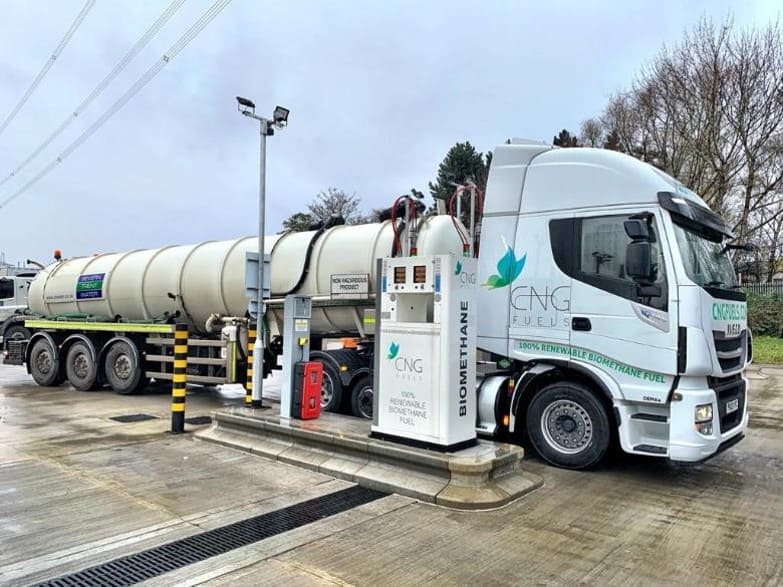

Bio-CNG can also facilitate cost reductions for long-haul HGVs. Whilst there is a premium associated with Bio-CNG vehicles versus a diesel equivalent, the fuel cost per mile can be around 30% lower than diesel, leading to payback within one or two years and savings thereafter. Savings are assessed based on the requirements of the user, including demand, fleet size, and location.
The reasons why companies struggle to escape diesel are often neglected, aside from the high cost of alternatives. Diesel is relatively cheap, offers good logistics, and is tried and tested. The Bio-CNG industry is growing daily, however. More biomethane is being injected into the grid, the network of public-access CNG Stations are growing, refuelling times are quick (less than 20 minutes), Bio-CNG vehicles are 50% quieter, emit less NOx, and the range and capacities of vehicles are not dissimilar.
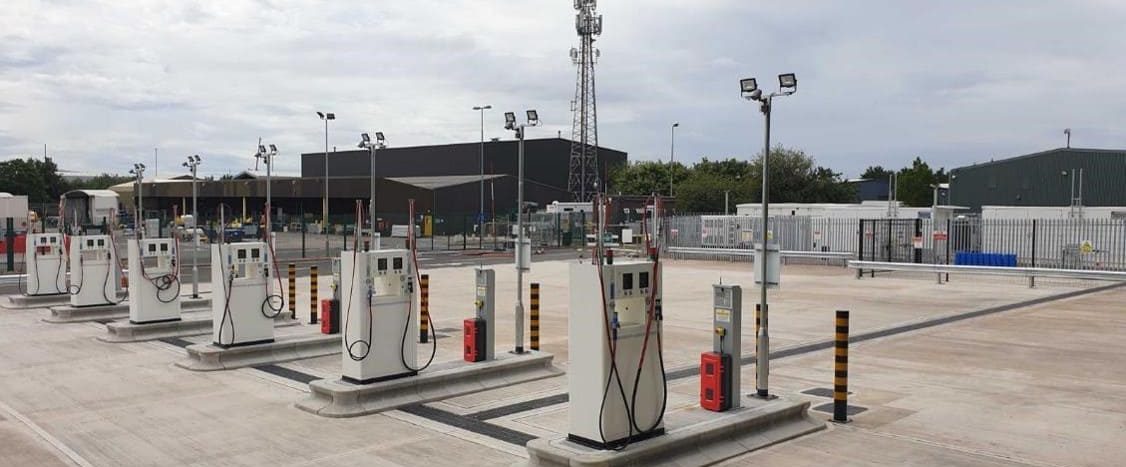

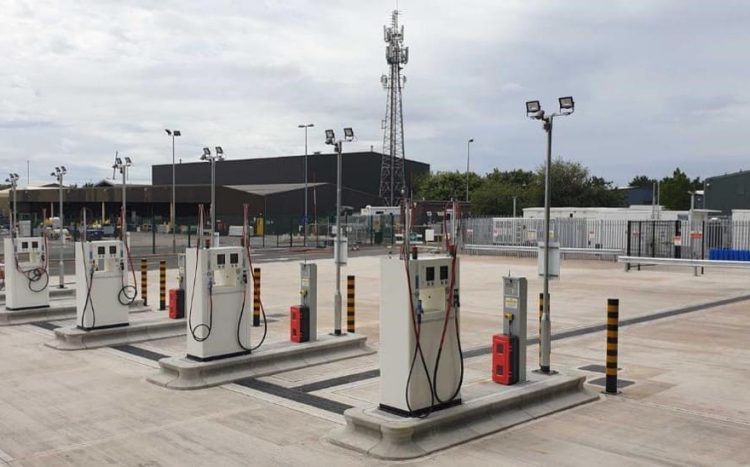

There are typically three avenues in which Bio-CNG can be accessed for businesses interested in transitioning. The simplest option is to use public access Bio-CNG stations, such as those operated by CNG Fuels. There is a growing network across Great Britain along major transport routes, although this option may not be available to everyone.
Alternatively, a depot-based CNG station could be constructed. This is where a connection is made to the local gas grid and compression infrastructure is installed on site to deliver Bio-CNG at the point of use. This may be a viable option for sites with a large number of local users (with a demand upwards of 1,000,000 kg/annum) and situated close to the distribution grid.
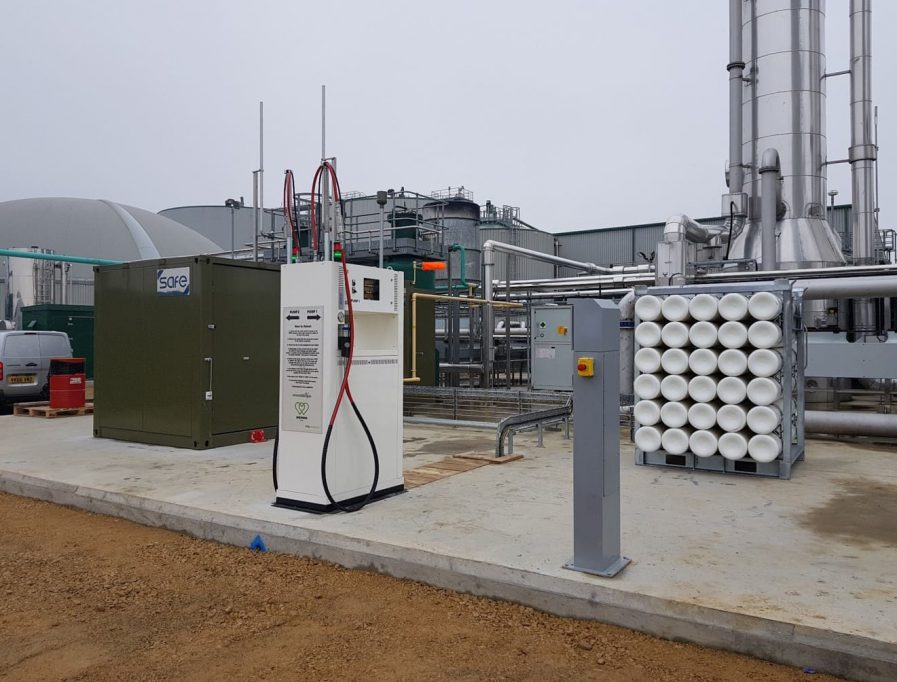

The final option is to use our ‘Mother-Daughter’ concept, whereby gas is loaded from a grid connected ‘mother station’ onto a storage trailer and delivered to the user’s ‘daughter’ site by road. The Bio-CNG can then be decanted from the trailer into local storage for use as either a vehicle fuel or for heating applications. The daughter station would typically consist of a Mobile Refuelling Unit [MRU] (a portable solution comprising a compressor, storage and dispensing arrangement) or Pressure Reduction System [PRS].
CNG Services Ltd (CSL) is an industry leader in undertaking Bio-CNG projects, providing innovation, design, consultancy, and build services for each of the aforementioned options. CSL helped construct the first transmission grid-connected Bio-CNG station in the UK (Leyland Bio-CNG Station), as well as taking Europe’s largest Mother Station at Fordoun from the initial concept to a fully functioning station, delivering Bio-CNG to Scotland’s remote Whiskey industry. More recently, CSL has constructed an MRU which can be trialed by prospective clients interested in beginning their decarbonisation journey in 2021.
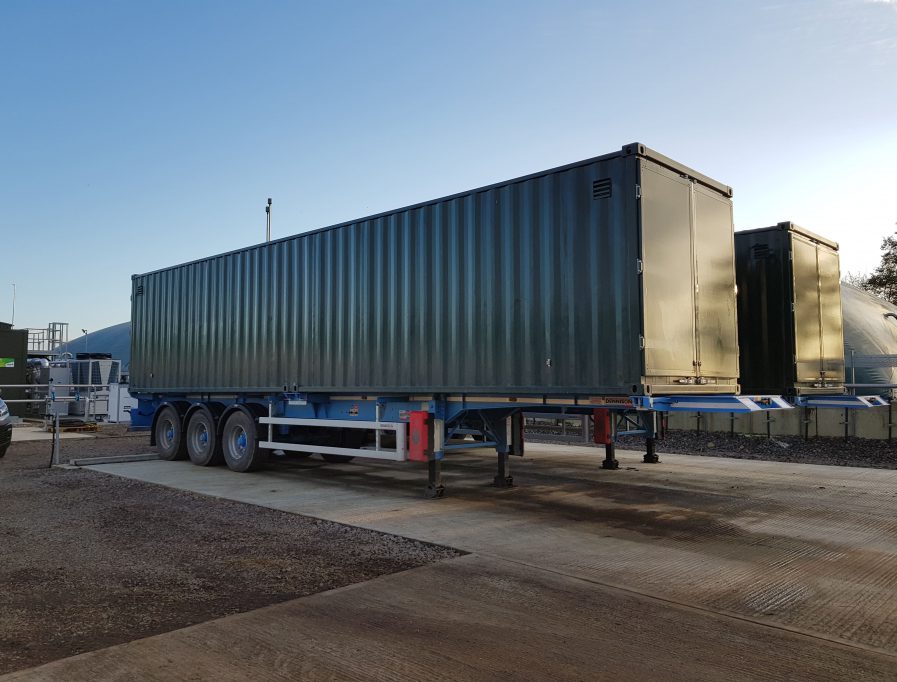


Please fill in the contact form below and a member of the team will be in touch with you shortly.